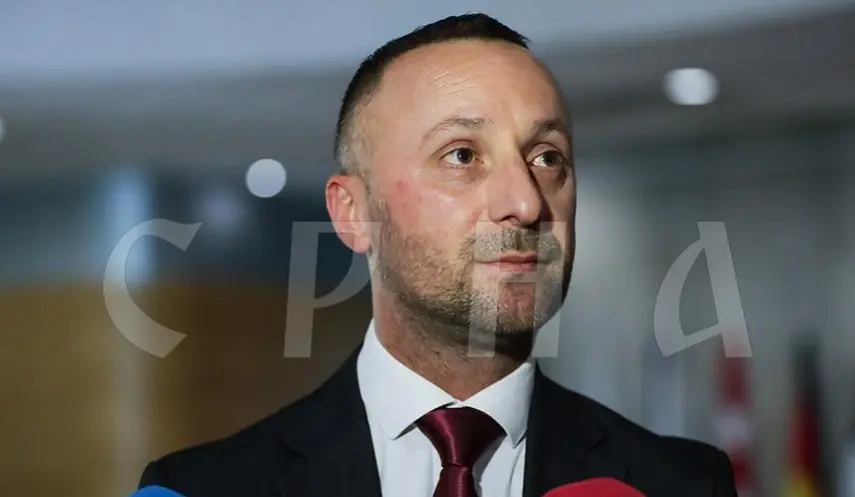GOAL OF MUSLIM CRIMES IN CENTRAL PODRINJE WAS ETHNIC CLEANSING OF SERBS
Republika Srpska - culture of memory - Kojić
06/30/2025
10:08

EAST SARAJEVO, JUNE 30 /SRNA/ – The monstrous crimes committed by members of Muslim forces against Serbs in Central Podrinje during the past war, often carried out on major Orthodox holidays, speak to their desire to ethnically cleanse all Serbs from that area, said Milorad Kojić, SNSD MP in the House of Representatives of the BiH Parliamentary Assembly.
He emphasized that the victims woven into the defense of Republika Srpska, especially those from Central Podrinje, given the manner in which Serbs were killed there, must be the foundation of the processes that are today taking place in defense of the constitutional and legal order of Srpska.
According to him, it is important to commemorate the suffering of Serbs, in this specific case in Central Podrinje, both from the aspect of culture of remembrance and memory, and so that future generations are aware of the facts and the sacrifices made for the creation of Republika Srpska.
"Especially when we keep in mind that judicial institutions, both the Hague Tribunal and the unconstitutional Court of BiH, not only did not respond adequately, but they humiliated and ignored the suffering of Serbs, humiliating the victims and their families by failing to prosecute those responsible for crimes against Serbs," Kojić stressed.
As the former Director of the Republic Center for Research of War, War Crimes and Missing Persons, Kojić recalled that the wartime commander of the so-called Army of BiH in Srebrenica Naser Orić was acquitted both in the Hague Tribunal and in the unconstitutional Court of BiH, despite all the witnesses and evidence testifying to the monstrosity of the crimes committed by members of the 28th Division in Bratunac, Srebrenica, Milići, and across Central Podrinje.
"That is why it is important that we know how many victims were given for the creation of Republika Srpska and that we remember them as they deserve," Kojić concluded.
Soon it will be 33 years since the great suffering of Serbs on Petrovdan /St. Peter's Day/ in 1992 in villages around Srebrenica and Bratunac, when 69 soldiers and civilians were killed and 22 captured, none of whom survived, and ten are still listed as missing.
Muslim units from Srebrenica most often attacked Serb villages during major Orthodox holidays during the Defensive-Patriotic War, and on Petrovdan in 1992 they attacked the villages of Zalazje, Biljača, Sase, and Zagoni, killing everyone they came across, looting, and burning Serb property.
In doing so, they continued implementing the plan of ethnic cleansing that had begun in April that same year, under which they destroyed everything Serbian to completely erase traces of Serb existence in these areas, as besides killing and expelling civilians and destroying property, they also destroyed Serb cemeteries and churches.
In Bratunac, on July 5, the 33rd anniversary of the suffering of the Serb people in Central Podrinje and Birač will be marked, where 3,267 Serbs were killed during the past war.
That day will be declared a Day of Mourning in Republika Srpska, and the memorial service for the victims will be served by Patriarch Porfirije, attended by the highest officials of Srpska and Serbia.

SERBS IN TEARS AND FEAR OVER OWNERSHIP OF ORTHODOX CEMETERIES AND CHURCHES

CVIJANOVIĆ DEMANDS ACCOUNTABILITY FOR SHAMEFUL CONCERT IN ŠIROKI BRIJEG

OSTOJIĆ URGES BiH AND EU TO ACT OVER GLORIFICATION OF FASCIST IDEOLOGIES





